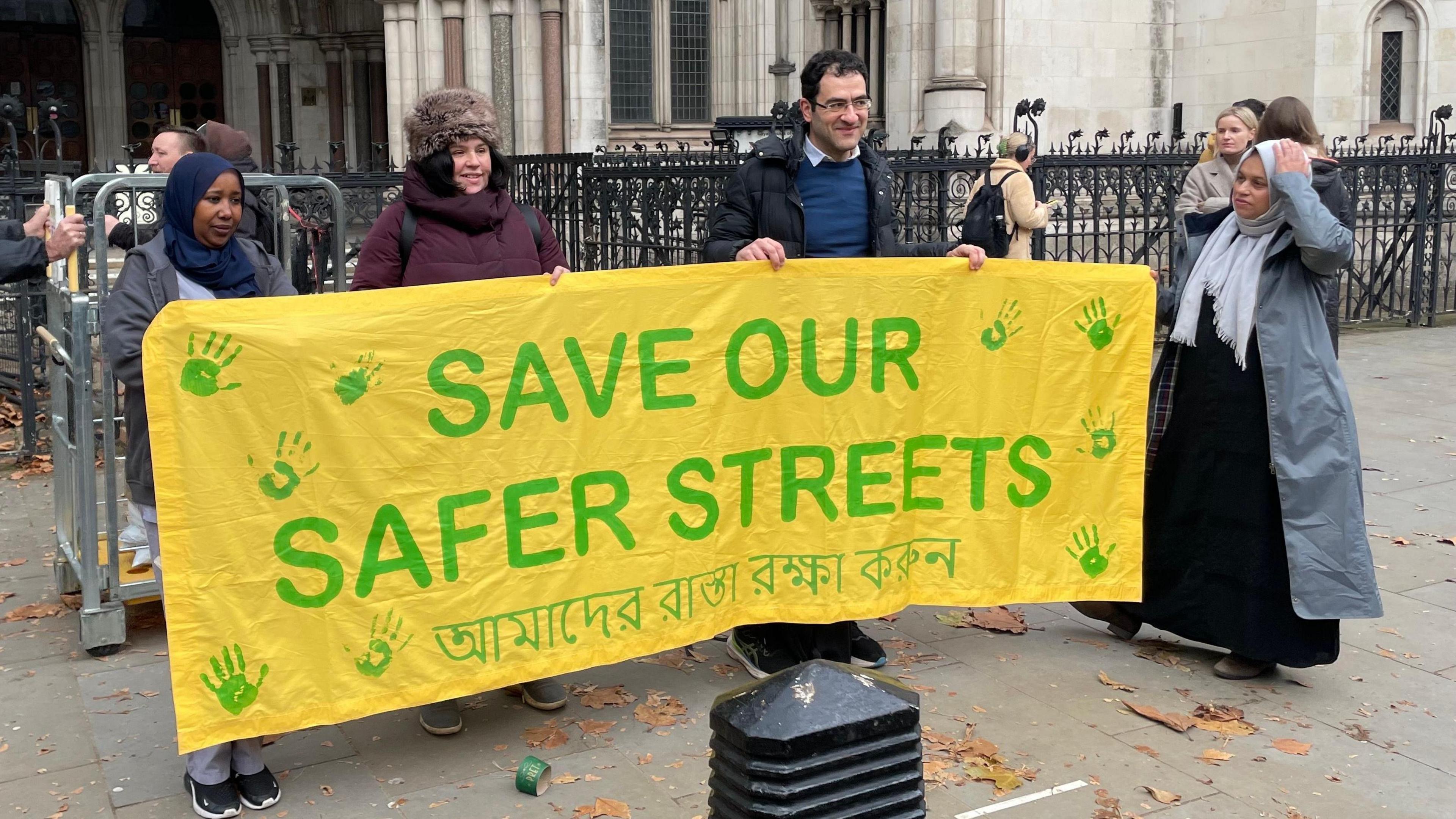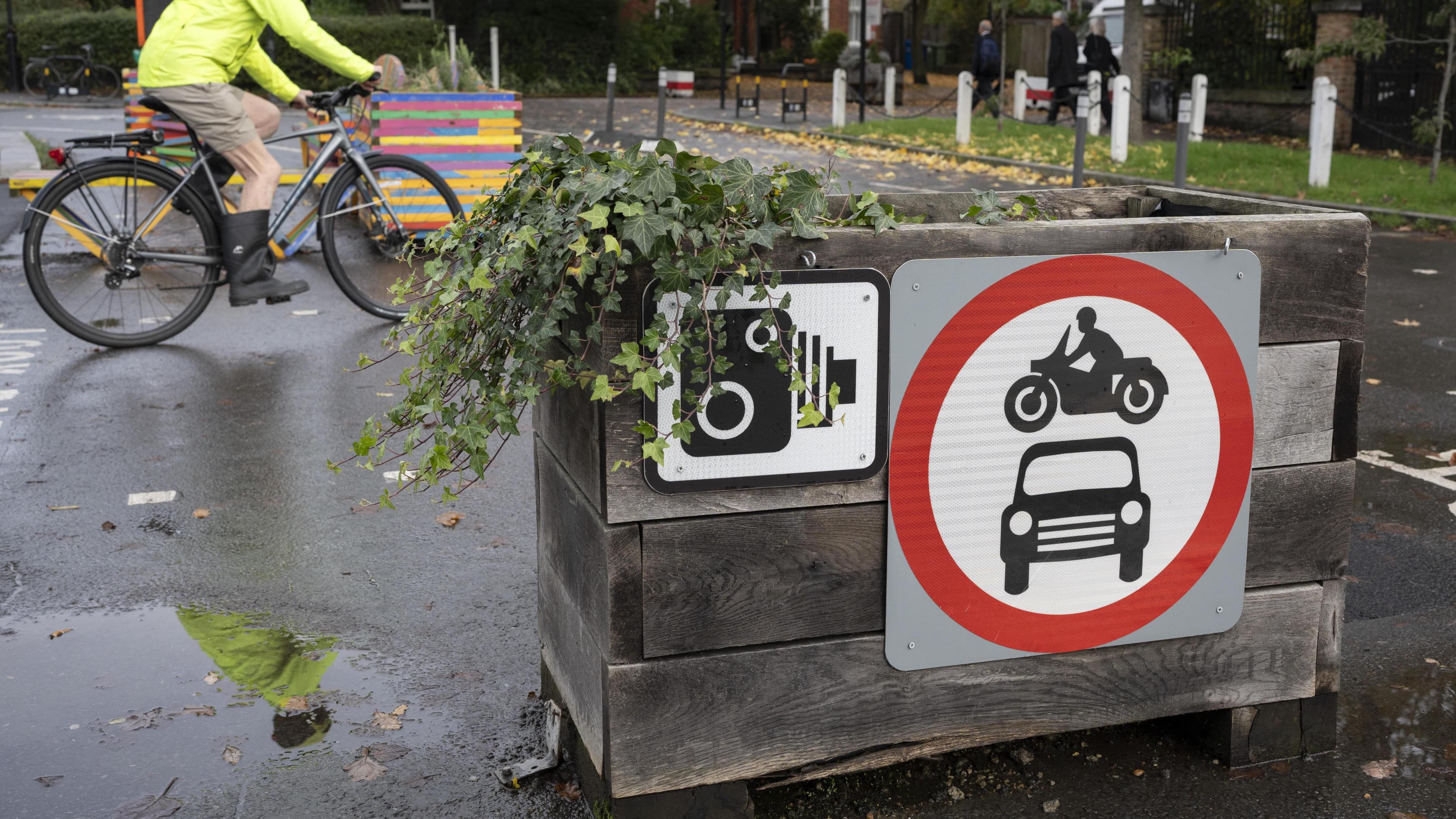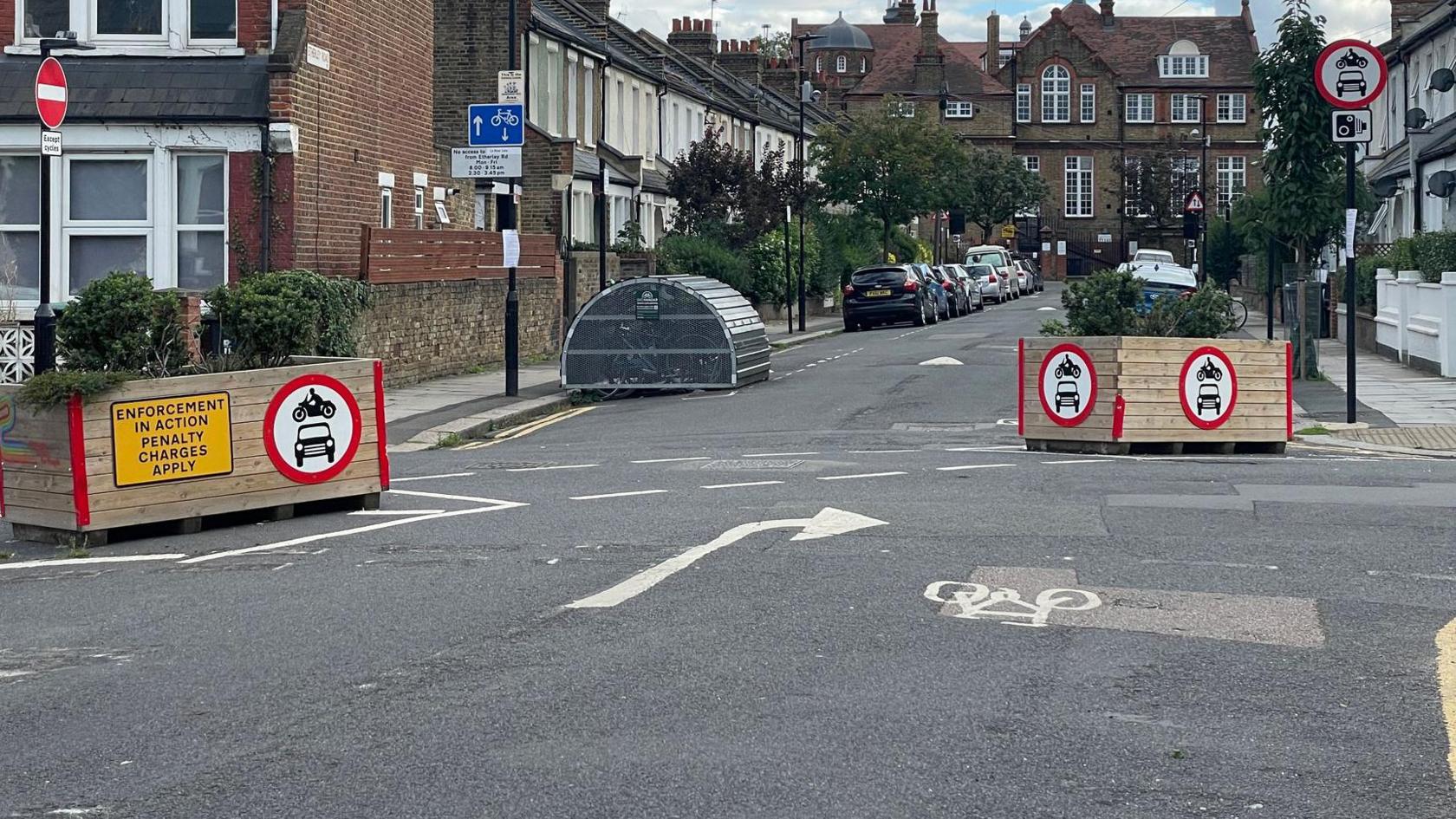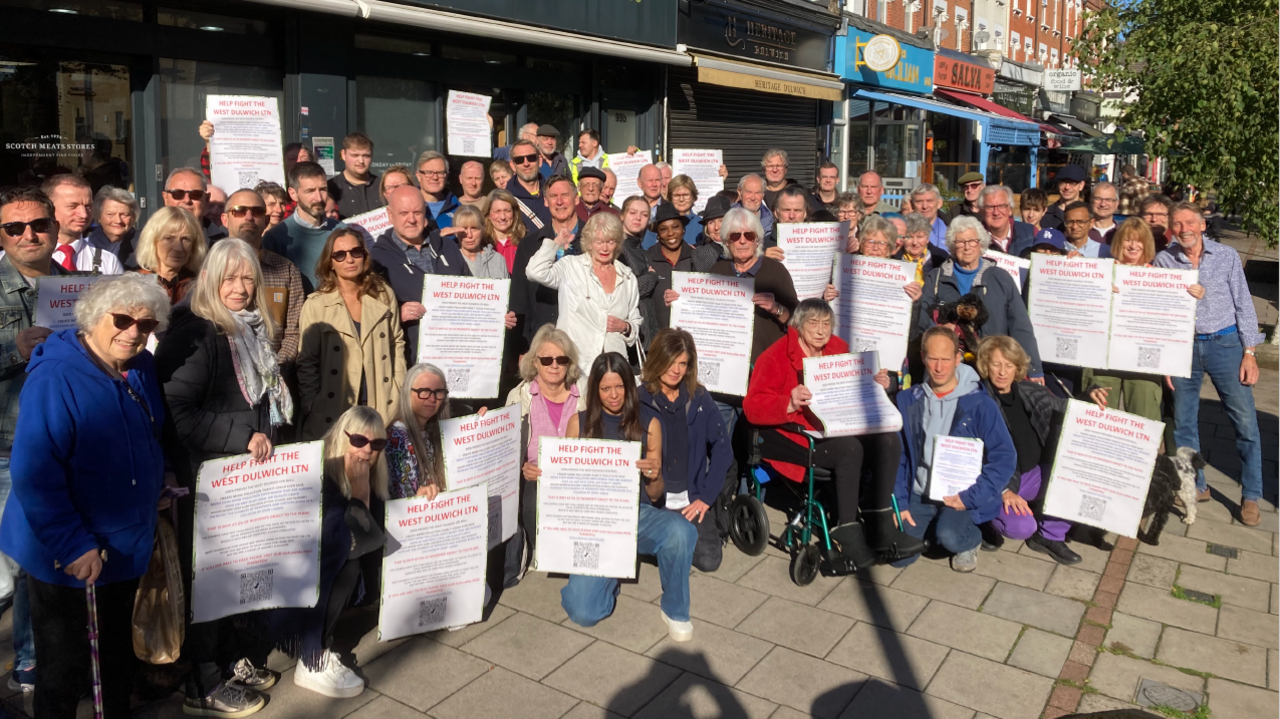Removing low traffic zones was lawful, court rules

The campaign group will appeal the decision
- Published
The High Court has allowed the removal of three Low Traffic Neighbourhoods from Tower Hamlets in east London.
The move has been criticised by campaign group Save our Safer Streets (SoSS) who argued mayor Lutfur Rahman broke the law by removing the LTNs in September last year.
The Tower Hamlets mayor said he "welcomed" the court's finding that his decision was lawful.
Jane Harris from SoSS said they were "extremely disappointed" and would be appealing the decision.
'Serious flaws'
The three LTNs in question were located in Columbia Road, Arnold Circus, and Old Bethnal Green Road and all had stayed in place pending the outcome of the legal challenge.
The decision could have political and legal repercussions across the capital, as it could set a precedent for boroughs who try to peel away from London mayor Sadiq Khan's over-arching transport strategy.
In his manifesto Mr Rahman had promised to "reopen our roads, and abolish the failed Liveable Streets scheme, which has seen emergency services and vulnerable residents' access blocked".
The judge reiterated that the case was not about the rights and wrongs of removing the scheme, but about whether the decision was legal.

Low Traffic Neighbourhood schemes were aimed at reducing traffic in residential areas
In a statement, SOSS said: "With so much support for the Low Traffic Neighbourhoods in Bethnal Green - including from schools, GPs, local residents, the Met Police and TfL - we had to do everything possible to prevent them being ripped out at a cost of millions and without listening to the people who live and work here.
"We believed that there were serious flaws in the way the mayor decided to remove them.
"We are deeply concerned about one council adopting a policy that is so at odds with what its own residents want."
In a statement following the ruling, Mr Rahman said: "While LTNs improve air quality in their immediate vicinity, the previous Labour administration's botched implementation of LTNs in Tower Hamlets caused traffic congestion on main roads.
"This led to complaints about increased air pollution and negative impacts on the health of many who live on main roads, which are predominantly working-class households."
'Active travel'
Transport for London (TfL) had argued that Mr Rahman's decision was at odds with the local implementation plan (LIP) which had previously been agreed between the borough and London mayor Sadiq Khan.
In response to the ruling, TfL said: "Walking and cycling infrastructure, including Low Traffic Neighbourhoods, plays an important role in making our streets safer and enabling more active travel across London.
"Decisions on schemes such as these are a matter for local councils, but we are carefully considering any implications for TfL-funded borough schemes."
Listen to the best of BBC Radio London on Sounds and follow BBC London on Facebook, external, X, external and Instagram, external. Send your story ideas to hello.bbclondon@bbc.co.uk, external
Related stories
- Published20 November 2024

- Published4 October 2024
